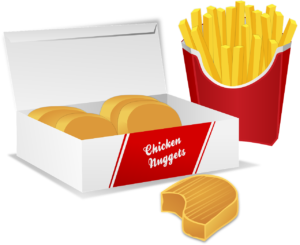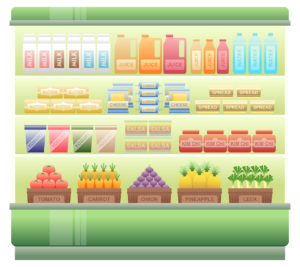Staying Away from ‘Cheap’ Eats Will Benefit Your Body and Your Conscience
 Rarely are the cheapest foods at the supermarket or corner store effective in nourishing our body, even if we are tempted by the price. As consumers who are becoming increasingly educated on nutrition and wellness, we discover that the cheap food usually has fillers, artificial flavors and preservatives that does nothing to actually nourish you, even if it fills you up! Furthermore, as consumers, we’re coming to understand that paying a higher price is not only about the value of the quality of the food (local, fresh and organic), but also about the value of the people who grew your food without chemicals and pesticides, and who are good stewards of the earth.
Rarely are the cheapest foods at the supermarket or corner store effective in nourishing our body, even if we are tempted by the price. As consumers who are becoming increasingly educated on nutrition and wellness, we discover that the cheap food usually has fillers, artificial flavors and preservatives that does nothing to actually nourish you, even if it fills you up! Furthermore, as consumers, we’re coming to understand that paying a higher price is not only about the value of the quality of the food (local, fresh and organic), but also about the value of the people who grew your food without chemicals and pesticides, and who are good stewards of the earth.
The American Diet Goes Global; Obesity Rises Yet Remote Islands Push Back by Restricting Junk Food by the NY TIMES
Lichen To Be Served Alongside Crickets as Climate Change Worsens
 Crickets, or more precisely, cricket flour, has taken a front yet still off-center role for some chefs in America.
Crickets, or more precisely, cricket flour, has taken a front yet still off-center role for some chefs in America.  Considering that the cost of raising animals on widespread pastures and in industrialized farms is critically damaging, not only to human health, but also the environment, crickets seem to offer a better alternative. Many scientists and food enthusiasts are looking for options which will support us into the future, as rising temperatures and limited resources persist. On March 12th, Slow Food North Shore will be screening a film on crickets at our 4th Annual Food and Film Feast, called The Gateway Bug, and sharing desserts made from their flour. For many of us, it doesn’t sound appealing, but for those who have tried it, they love it! Come check it out! NPR reports that Reindeer are just one other species looking for alternative options to traditional cuisine.
Considering that the cost of raising animals on widespread pastures and in industrialized farms is critically damaging, not only to human health, but also the environment, crickets seem to offer a better alternative. Many scientists and food enthusiasts are looking for options which will support us into the future, as rising temperatures and limited resources persist. On March 12th, Slow Food North Shore will be screening a film on crickets at our 4th Annual Food and Film Feast, called The Gateway Bug, and sharing desserts made from their flour. For many of us, it doesn’t sound appealing, but for those who have tried it, they love it! Come check it out! NPR reports that Reindeer are just one other species looking for alternative options to traditional cuisine.
Food Labeling is Still Unclear, Know the Difference
 “Some environmental advocacy groups, such as the Natural Resources Defense Council, have been pushing for a reform on food labels for a long time, saying that the existing labels have been an obstacle to reducing food waste. Last year, the USDA issued a guidance document that asked companies voluntarily to adopt one of just two descriptors, “best if used by” and “use by.”
“Some environmental advocacy groups, such as the Natural Resources Defense Council, have been pushing for a reform on food labels for a long time, saying that the existing labels have been an obstacle to reducing food waste. Last year, the USDA issued a guidance document that asked companies voluntarily to adopt one of just two descriptors, “best if used by” and “use by.”
 The labels, you see, don’t mean what they appear to mean. Foods don’t “expire.” Most foods are safe to eat even after that “sell by” date has passed. They just may not taste as good, because they’re not as fresh anymore. Companies use the labels to protect the reputation of their products – they want consumers to see and consume their food in as fresh a state as possible. But those dates cause consumers to throw perfectly good food into the trash, and as we all have been hearing, we have a serious Food Waste problem! NPR, the Salt
The labels, you see, don’t mean what they appear to mean. Foods don’t “expire.” Most foods are safe to eat even after that “sell by” date has passed. They just may not taste as good, because they’re not as fresh anymore. Companies use the labels to protect the reputation of their products – they want consumers to see and consume their food in as fresh a state as possible. But those dates cause consumers to throw perfectly good food into the trash, and as we all have been hearing, we have a serious Food Waste problem! NPR, the Salt
Grocery Industry Pushes to Simplify Labels and Reduce Food Waste by the NY Times

Comments are closed.